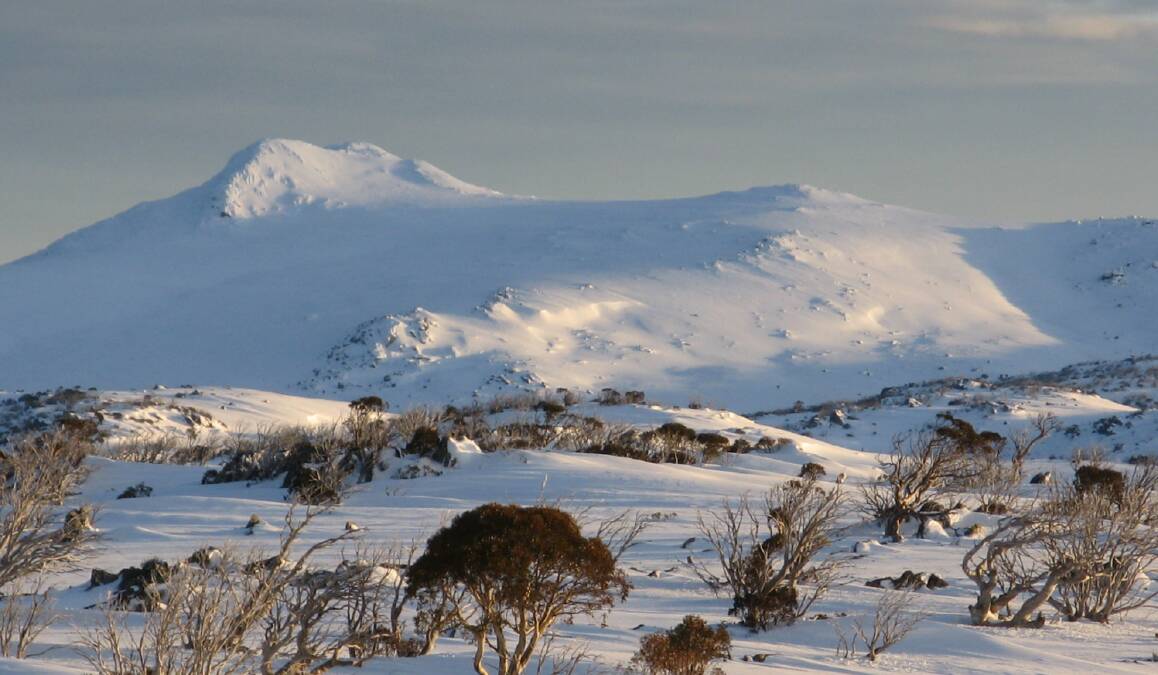When David Hanzl of Carwoola offered his wife Lisa a hand to research the history of the Carwoola Rural Fire Brigade, locals kept telling him, "there was once a helicopter crash in the area".
"The rumours were very inconsistent; some were saying the crash occurred in the 1960s, others saying in the 1980s," he explains.
Undeterred, the history hound was determined to get to the bottom of the mystery chopper crash.
"My dad was an air crash investigator with the old Department of Civil Aviation, and he passed on to me a lifelong interest in aviation, so I was especially curious about this local incident," reveals David.
More Yowie Man from this week: How Canberra's red pond got its vibrant colour
David was in for a surprise.
"I soon discovered there was actually more than one crash, and the more I looked, the more aviation crashes and incidents I unearthed in the area," he reveals, adding "the conflicting rumours weren't conflicting at all, and in fact were more or less correct - there were just lots of incidents."
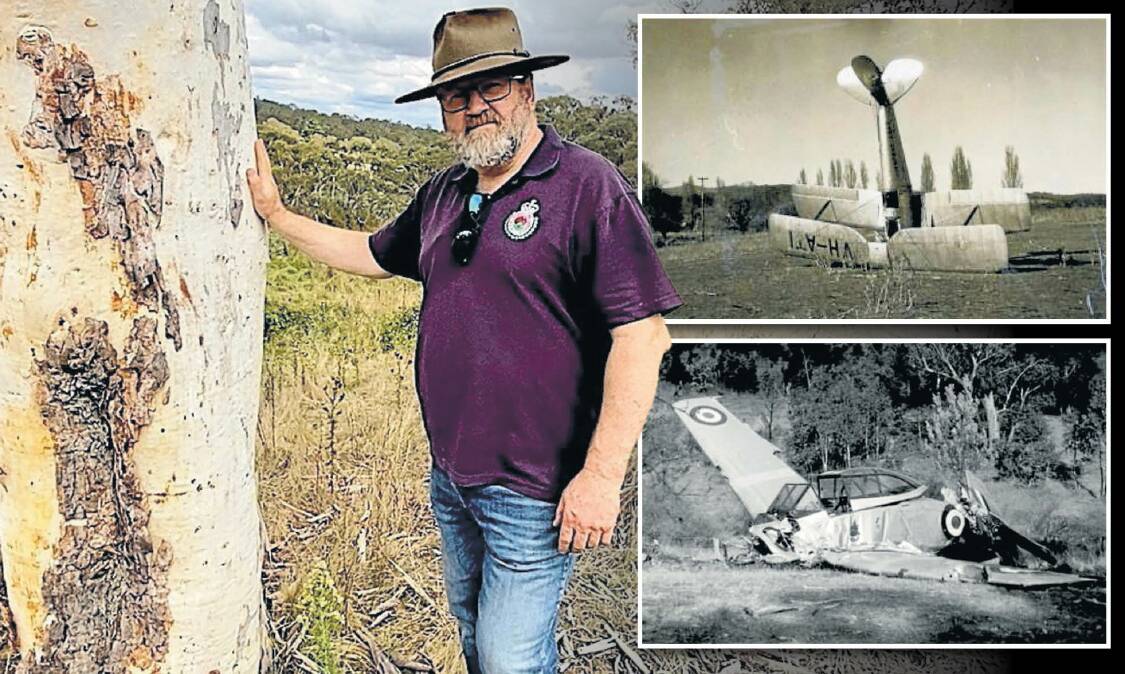
After two years of sifting through reams of records at various authorities including the Aviation Transport Safety Bureau, Civil Aviation Safety Authority, Defence Aviation Safety Authority, Office of Air Force History, Airforce Squadron Associations, libraries and more, he'd uncovered more than 40 aviation incidents since 1932, all in the vicinity of Carwoola and nearby Hoskinstown.
Yes, 40!
Remarkably, of these incidents all but seven were military-related and although some were simply forced landings that were later able to be recovered, many were more serious, including a total of 10 fatalities.
As an ex-military member, David confesses he "couldn't allow this tragedy and history to simply be forgotten" and as a result, put pen to paper in his soon-to-be-published book Aviation Incidents in Carwoola & Hoskinstown in which he has meticulously documented each case.
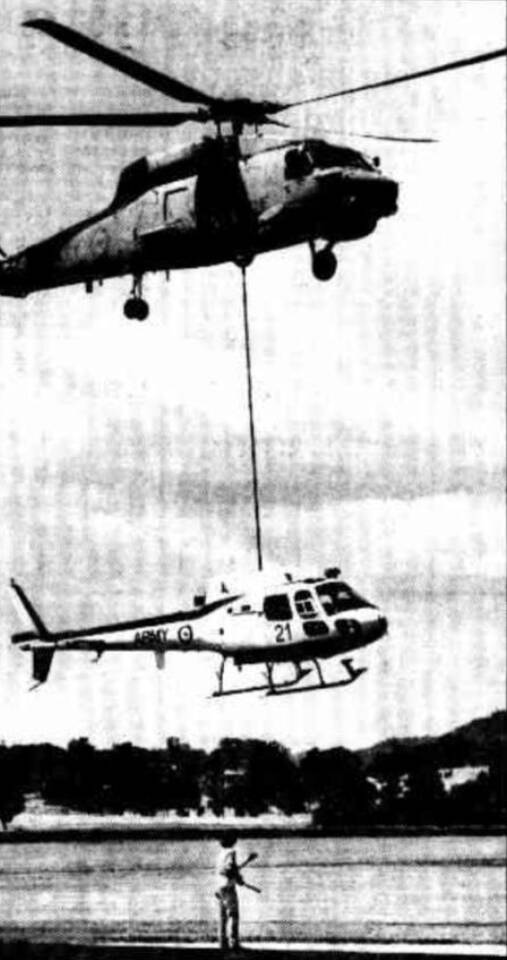
"The main reason for the high proportion of military incidents, most of which involved helicopters, was because from World War II until the 1990s, aircraft based at RAAF Fairbairn at Canberra Airport used the area above Carwoola and Hoskinstown as a low flying training area," David explains.
Some cases involved a bit more digging than others.
One of the trickiest was that of a light aircraft, Winjeel A85-419 which crashed into a paddock on 13 September 1956.
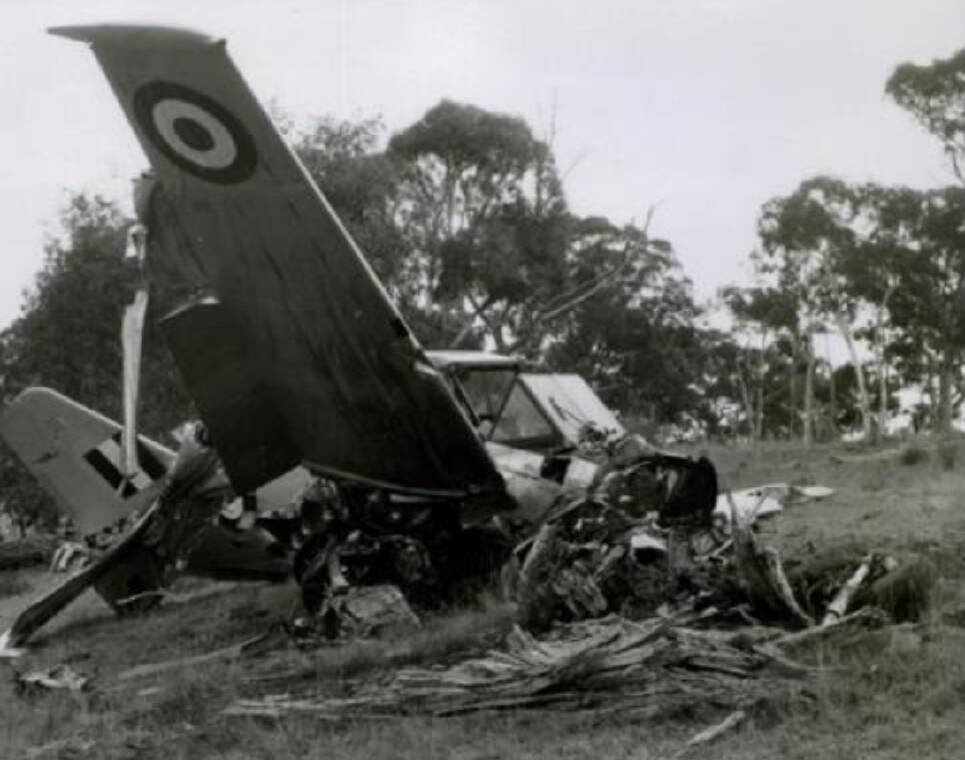
According to the Queanbeyan Age, "around midday, a grazier ... working near Captains Flat Road ... saw the aircraft doing what he thought were unusual aerobatics and called his wife to watch".
"They saw the plane spin out of sight into the hills and heard a crash."
Jack asked his wife to telephone the Queanbeyan police while he dashed to the scene of the crash on horseback.
"On his arrival, the plane was wrecked," explains David, adding "both men on board, Flying Officer John McCarthy and Pilot Officer Bruce Best were killed instantly".
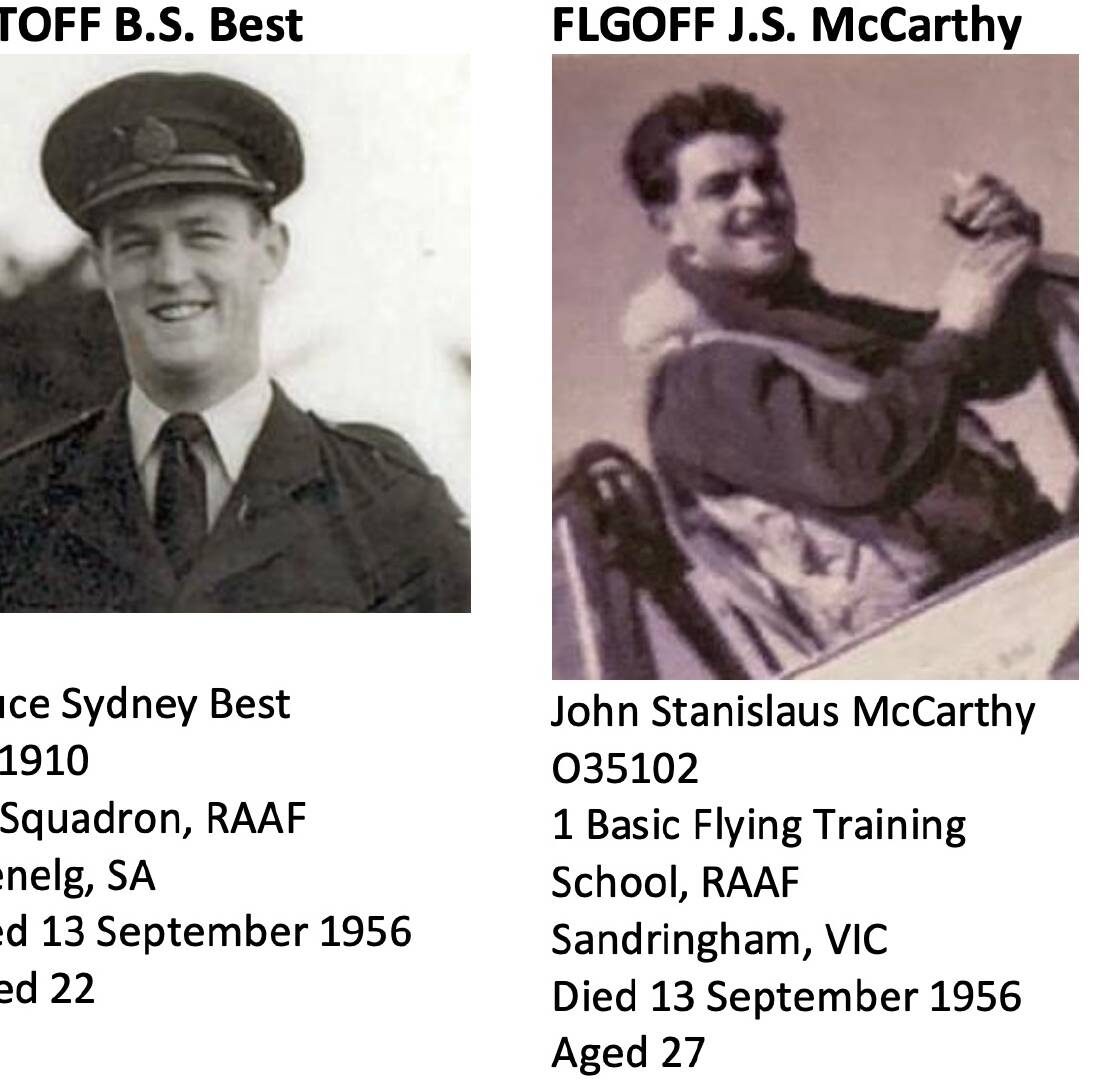
The Queanbeyan Age reported that the aircraft had "landed in a flat spin and ploughed a furrow in the ground before striking a tree, rebounding and coming to rest in a tangled wreck about 30 yards away".
"It was speculated the pilots may have been practising spin recoveries in cloud," says David, adding "RAAF Court of Inquiry records indicate the likely cause of this crash was a 'failure to recover from a spin' and could not determine why the usual recovery was ineffective."
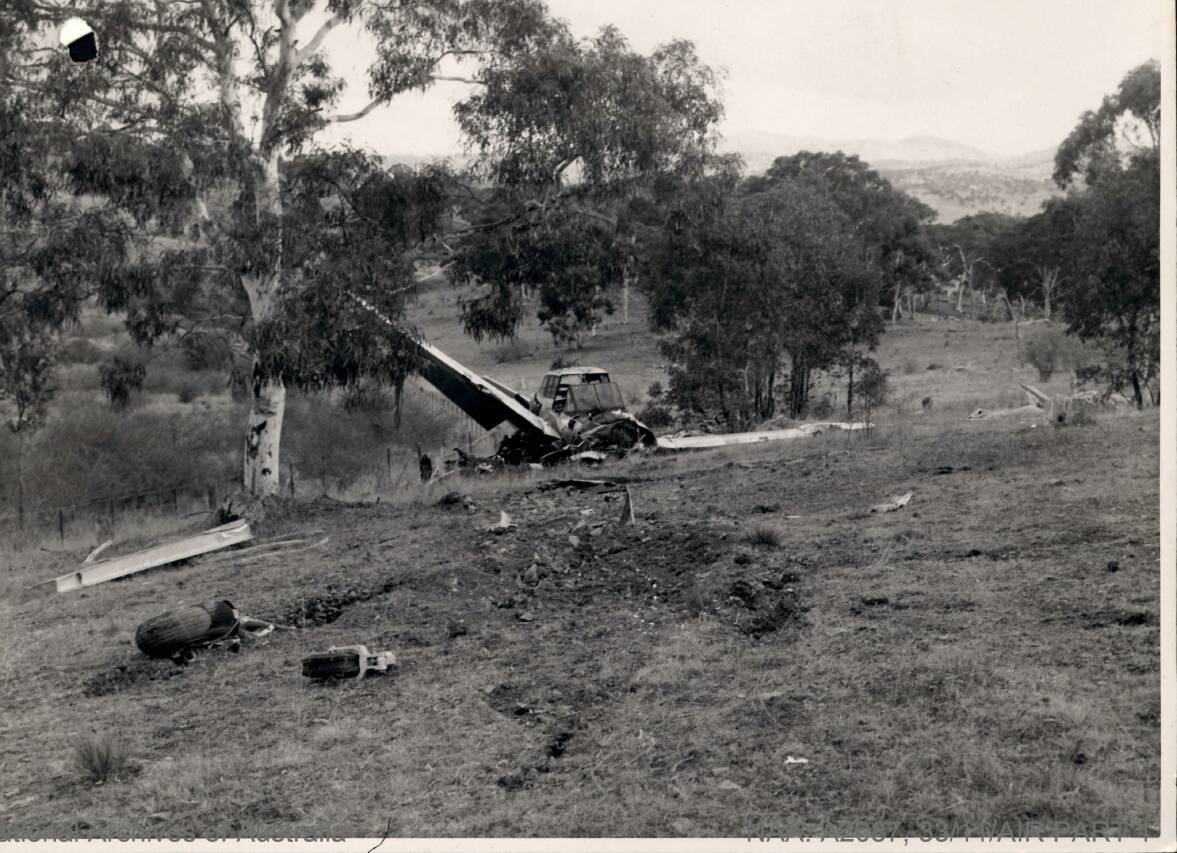
But it was the reported location of the crash that especially puzzled David.
When comparing photos taken by accident investigators at the crash site with the reported location, they simply didn't match.
So, using maps, walking paddocks for several days, looking at the lay of land and hills in the background, David eventually found the very tree the plane had struck when it crashed.
Earlier this week I accompanied David on a visit to the site.
It's still and very quiet.
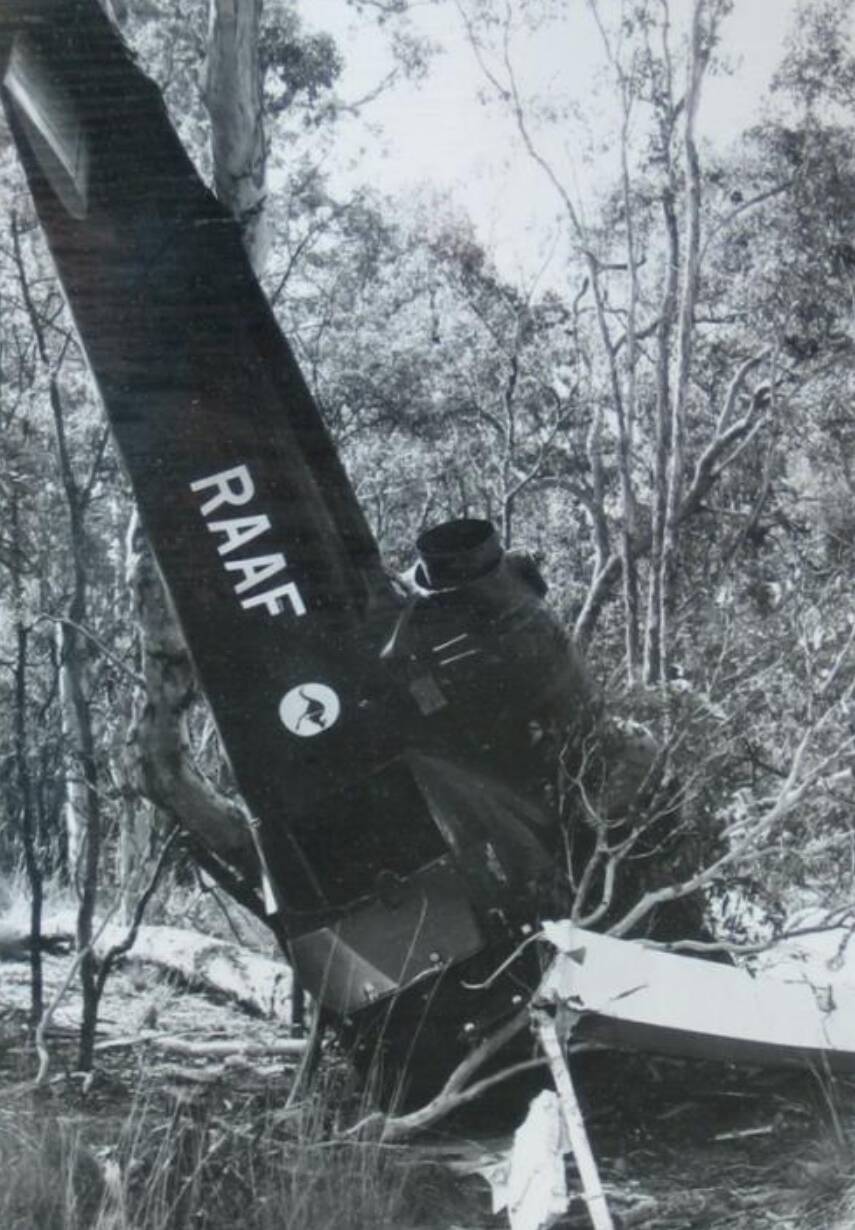
There's no obvious sign of what unfolded here almost 70 years ago, the wreckage like that from most of the 40 incidents retrieved soon after the accident for analysis by air crash investigators.
As I approach the tree the plane struck, my steps slow. It hits me that this wasn't just the location of a long-ago crash, but the very spot where two people lost their lives in traumatic circumstances.
Can you imagine those last moments of terror as their plane plummeted towards the ground, knowing their fate was sealed? Awful.
I'm not the only person David brought here to this lonely hillside. Three years ago, he also walked in here with Peter McCarthy, the brother of Flying Officer Jack McCarthy.
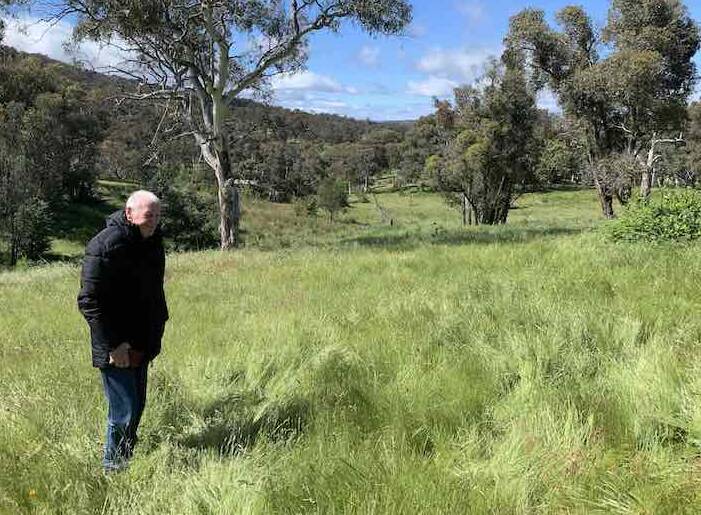
"As you can imagine it was very emotional for him," reflects David.
It is remarkable that so little is known about this tumultuous chapter in local aviation history. All 10 men who died in the Carwoola/Hoskinstown area did so while training to serve our country. They should be remembered and honoured, and through David's expert sleuthing they finally are.
Aviation Accidents in Carwoola and Hoskinstown: David's free talk in which he will reveal the forgotten story behind the strangely high number of crashes and honour the memory of the 10 RAAF aircrew who lost their lives in this small area to the east of Canberra is on Saturday, April 15, from 11am to 12.30pm at the Queanbeyan Library. Bookings essential: act.gov.au/heritagefestival
WHERE IN THE A.C.T.?
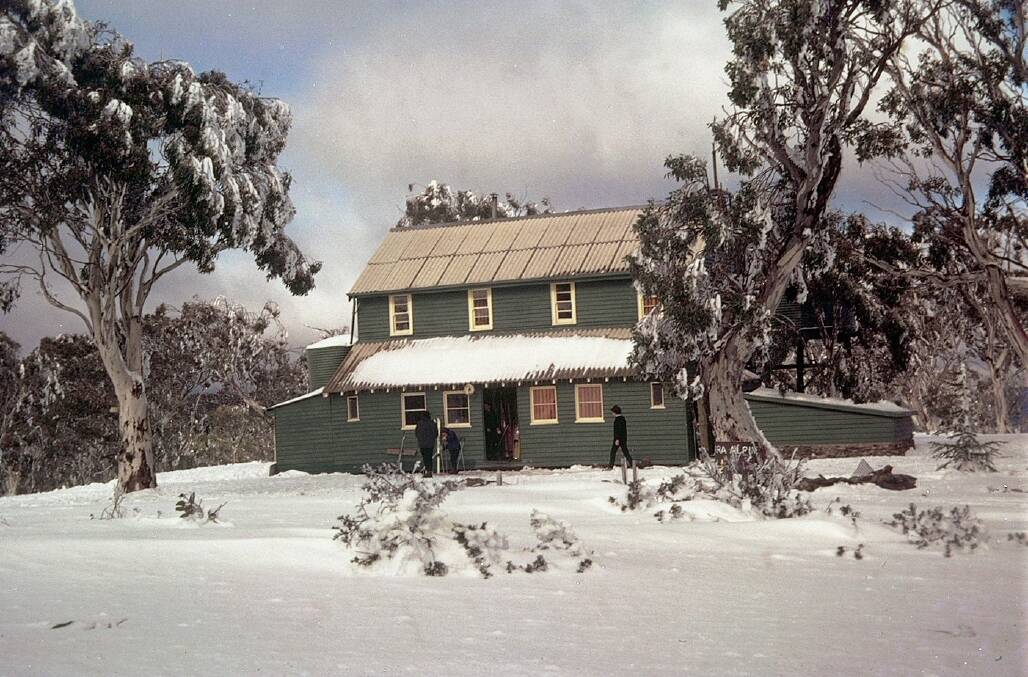
Rating: Easy
Clue: Gone, but not forgotten
How to enter: Email your guess along with your name and address to tym@iinet.net.au The first correct email sent after 10am, Saturday, April 8, wins a double pass to Dendy, the Home of Quality Cinema.
Last week: Congratulations to Jenny McLeod of Weston who was first to correctly identify last week's photo (below) as the summit of Mt Jagungal, in Kosciuszko National Park.
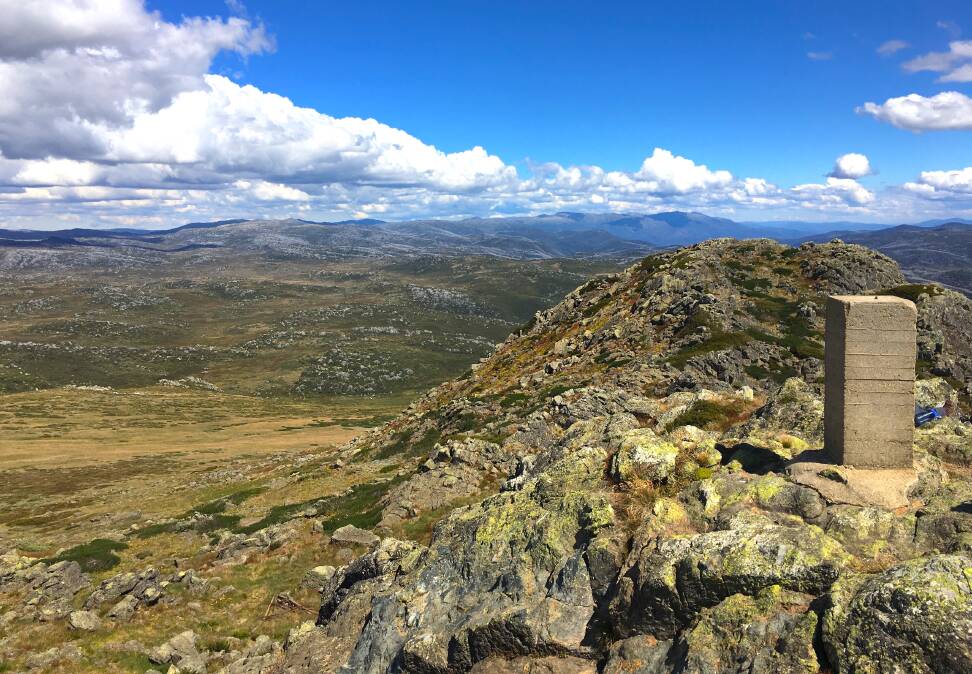
The clue of "hear the lion roar" referred to its nickname of the "sleeping lion". "I've never really been able to see much resemblance, personally," admits Jenny, adding "it's been a few years since I was out that way, but the square cairn gave it away to me, even before I saw the clue."
Jenny, who also reveals "you can see Mount Jagungal from near the summit of Mount Franklin, in the Brindabellas - a straight line distance of about 80km", just beat Roger Shelton of Spence and Bill Crawshaw of Fadden to the prize.
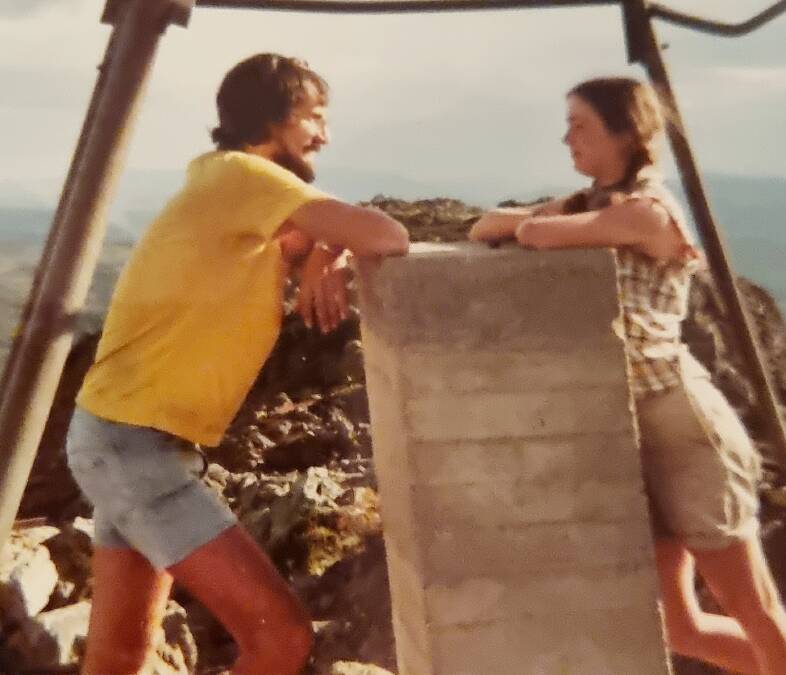
Meanwhile Leigh Palmer of Isaacs who has climbed the 2061m peak several times reports, "Mt Jagungal is the most northerly of the +2000m peaks on mainland Australia.
"A mate and I were on the top once remarking that we were probably the only ones for kilometres in any direction having seen no one for two days when a voice said 'G'day'."
Finally, Glenn Schwinghamer of Kambah reports "there used to be a metal trig point over the concrete cairn", and asks "was it blown over by a storm?"
